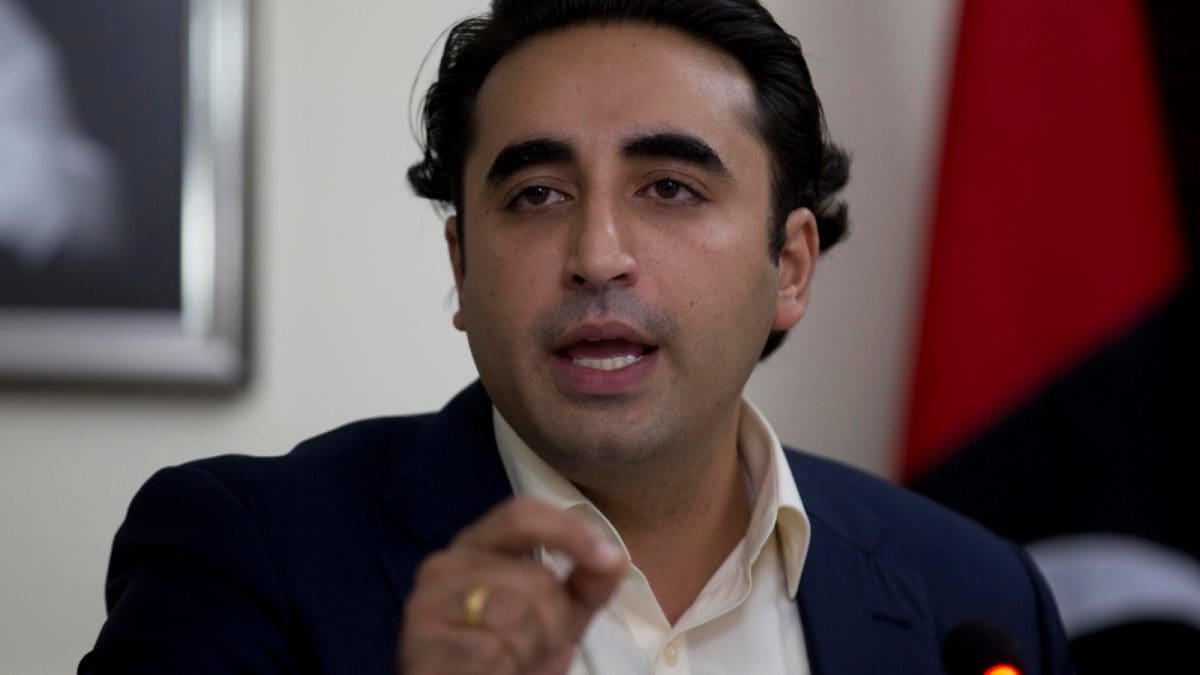Last Updated:June 08, 2025, 20:35 IST
Rebukes from US officials to being grilled over its human rights, Pakistan’s latest diplomatic adventure opened a can of worms, leaving behind bigger mess than it set out to clean
At a press conference at the United Nations, Bilawal Bhutto Zardari attempted to portray India as anti-Muslim, only to be corrected by a journalist. (AP File)
Pakistan’s latest outreach to Washington, led by former foreign minister Bilawal Bhutto Zardari, was meant to counter India’s global campaign to expose Islamabad’s role in cross-border terrorism. But it backfired. What unfolded was a series of public embarrassments — from being scolded by US lawmakers, to being fact-checked by a journalist at the UN, and being completely ignored on key agenda items like the Indus Waters Treaty.
After India announced a cross-party delegation to multiple countries to build consensus against Pakistani terrorism, Islamabad rushed to mount a smaller, reactive mission focused on the United States. The aim was to challenge India’s narrative, whitewash Pakistan’s use of terror as state policy, and project itself instead as a victim of terrorism.
But the strategy was flawed. The facts were on India’s side, not Pakistan’s. What followed was a series of public relations disasters for Islamabad.
Let’s start with US Congressman Brad Sherman. Having met the Pakistani delegation, Islamabad expected support. Instead, Sherman publicly demanded on X (formerly Twitter) that Pakistan eliminate Jaish-e-Mohammed — the terror group responsible for the brutal 2002 murder of journalist Daniel Pearl, who was Sherman’s own constituent.
“Pakistan should do all it can to eliminate this vile group and combat terrorism in the region,” Sherman posted. This wasn’t a private remark — it was a public rebuke.
But Sherman didn’t stop there. He raised the continued imprisonment of Dr Shakil Afridi — the physician who helped the US locate Osama Bin Laden. “Freeing Dr Afridi represents an important step in bringing closure for victims of 9/11,” he said.
On water disputes, Sherman made an even more telling statement: China should not nick India’s water, India should not nick Pakistan’s water, and Pakistan’s Punjab should not nick Sindh’s water. That exposed the hypocrisy of Pakistan’s position on water-sharing, not just regionally but domestically.
Met with @BBhuttoZardari, #Pakistan’s Ambassador Sheikh & House Foreign Affairs leadership for a candid conversation about regional tensions following last month’s India-Pakistan conflict, democracy in Pakistan, & counterterrorism in the region. 1/5 pic.twitter.com/NEbcGfY8TS— Congressman Brad Sherman (@BradSherman) June 5, 2025
Sherman then landed a final blow — highlighting Pakistan’s persecution of minorities. “Christians, Hindus, and Ahmadiyya Muslims living in Pakistan must be allowed to practice their faith and participate in the democratic system without fear of violence, persecution, discrimination, or an unequal justice system.”
For years, Pakistan has managed to escape serious scrutiny on such human rights violations. A direct and public critique from a senior U.S. lawmaker marks a sharp shift — and should serve as a warning.
Sherman also spotlighted one of Pakistan’s most suppressed issues: enforced disappearances in Sindh. “For years, the people of Sindh have faced political repression through enforced disappearances and extrajudicial killings. Since its founding in 2011, Pakistan’s own Human Rights Commission has documented over 8,000 such cases, many of which have never been properly investigated,” Sherman said.
Talk about opening a can of worms. Islamabad had more to worry about than just diplomatic messaging — it now faced the international spotlight on its own governance failures.
Meanwhile, the Pakistani delegation’s attempt to raise the Indus Waters Treaty got no traction. Their plea to pressurize India over hydropower projects on the western rivers was met with silence. No statements. No pressers. Not even polite acknowledgement. The U.S. wasn’t buying it — a clear signal that Washington no longer has time for Pakistan’s grievance theatre.
Then came another embarrassment. At a press conference at the United Nations, Bilawal Bhutto Zardari attempted to portray India as anti-Muslim, only to be corrected by a journalist. “Sir, I’ve watched briefings from both sides. Muslim military officers were conducting the briefing for India,” the journalist pointed out.
Caught off guard, Bhutto simply nodded and admitted, “As far as the operations are concerned, you’re absolutely right.” Humbled in seconds — a symbolic moment in a trip that offered Islamabad little more than a diplomatic scolding.
But true to form, Pakistan didn’t retreat or reflect. Instead, it doubled down.
In yet another blunder, Bilawal Bhutto defended Hafiz Abdur Rauf — the man seen leading funeral prayers after India’s Operation Sindoor airstrikes targeted terror camps in Pakistan and Pakistan-occupied Kashmir. Bhutto claimed Rauf merely shared a name with a designated terrorist. However, Pakistan’s own military media wing, ISPR, released a CNIC that directly matched U.S. Treasury records, confirming Rauf’s identity and his role in the Lashkar-e-Toiba-linked Pakistan Markazi Muslim League (PMML), a party designated as a terror proxy by the U.S. in 2018.
Few individuals, as per the US Treasury, are more integral to LeT’s fundraising than Rauf. Yet Pakistan chose to defend him.
Finally, in a bizarre twist, Bilawal Bhutto floated the idea of cooperation between India’s RAW and Pakistan’s ISI. “I am completely confident that if ISI and RAW sat down to work together, we’d see a significant drop in terrorism on both sides,” he said.
A strange proposition, considering Pakistan’s long record of harbouring terror outfits — 83 proscribed organisations at last count, with 45 still active. These include transnational networks like the Haqqani Network, ISKP, and al-Qaeda, alongside India-focused groups like Lashkar-e-Toiba and Jaish-e-Mohammed. Most operate with the knowledge — if not direct support — of the Pakistani state and military.
The only group that consistently targets Pakistan is the Tehreek-e-Taliban — a blowback of Islamabad’s own strategic games.
So far, Pakistan has used diplomatic platforms to either deny or deflect these truths. But it is becoming more and more difficult for the world to overlook Pakistan’s brazen support of terror. Even the religion card is being declined. Trying to play the religion card, the Pakistani embassy even asked Malaysia to cancel all ten events scheduled by India’s delegation. “We are an Islamic country, you are an Islamic country,” the embassy pleaded. Malaysia declined the request. All ten events went ahead as planned.
Humiliation. Public embarrassment. Strategic disgrace.
Operation Sindoor has left a giant crater in Pakistan’s global image—a blemish no amount of denial, whitewashing or spin can conceal. It’s karma in all its glory and it has been duly noted by the world.

Shubhangi Sharma is News Editor – Special Projects at News18. She covers foreign affairs and geopolitics, and also keeps a close watch on the national pulse of India.
Shubhangi Sharma is News Editor – Special Projects at News18. She covers foreign affairs and geopolitics, and also keeps a close watch on the national pulse of India.
First Published:

